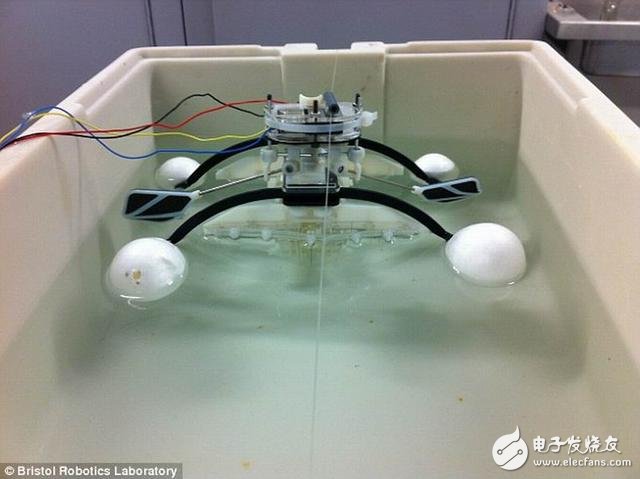According to the British Daily Mail, at present, British robotics experts have recently developed a software robot that can efficiently digest some living microorganisms by phagocytizing organic matter to obtain energy. Scientists believe that this self-supporting "robot scavenger" can be used to remove sewage or algal blooms.
Developed by the Bristol Engineers Research Group in the UK, this software robot is able to search for organic matter from the surrounding waters and obtain energy to “sustain survivalâ€. It is reported that the robot simulates a marine organism called the scorpion squirt, which is a simple, nearly transparent tubular organism capable of filtering debris from water.
Using a soft polymer membrane as the "mouth", the software robot can filter the surrounding aquatic environment to get the energy it needs. But unlike the stomach or digestive system of living organisms, it relies on a microbial fuel cell that assembles bacteria to break down organic matter.
Microbial decomposition releases chemical energy stored in biomass energy and transforms it into electrical energy used by robots. This subtle design of the robot mimics the symbiotic relationship of marine life, and it is reported that the biological symbiosis in the marine environment has made them an advantage in the evolution of billions of years.

Once the robot swallows contaminated organic matter in the water, it will expel another form of matter and allow the robot to move. At present, experts point out that this kind of energy acquisition is very limited, but software robots can completely reduce the required energy consumption. In addition, the team was able to combine this robot with a diverse fuel cell to boost energy output.
This software robot is able to maintain its life in a lesser food environment and therefore has a strong self-reliance. Earlier this year, American researchers recently developed a 3D printed octopus robot, which looks like a miniature octopus. It is designed to simulate octopus and travel freely through underwater gaps and narrow spaces. It is an ideal rescue robot. . Researchers at Harvard University in the United States are responsible for the development of the robot, which has a low manufacturing cost.
Solar Inverter,Centralized Inverter,Off-Grid Inverter,Grid -Connected Inverter
Fuzhou Mei Li Cheng Imp&Exp Co., Ltd , https://www.mlc-solar.com